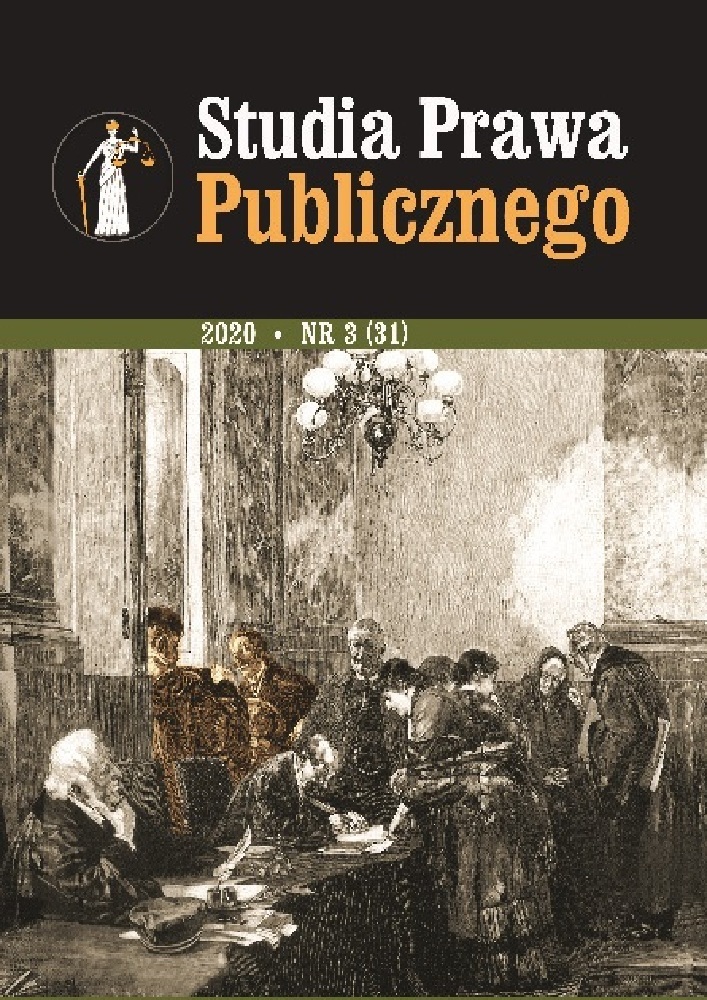Abstrakt
The case-law of the European Court of Human Rights in tax matters has developed in three dimensions. Firstly, it involved Article 1 of the Protocol No. 1 to the Convention with reference to “the payment of taxes”, viewed, notwithstanding the State’s wide margin of appreciation, in the light of the principle of the peaceful enjoyment of one’s possessions. Secondly, from the perspective of Article 6 paragraph 1 of the Convention, tax disputes can be covered by the guarantees of a fair trial where the proceedings and sanctions, for example, concerning tax surcharges, are qualified in their autonomous Convention meaning as a “criminal charge” against the taxpayer. Moreover, despite its traditional case-law, in the last years the Court has seemed to allow the possibility of qualifying tax disputes as concerning “civil
rights and obligations” Thirdly, on the basis of Article 4 of Protocol No. 7 to the Convention, the Court has found violations of the prohibition “to be tried or punished again in criminal proceedings” in the context of dual, i.e. tax (administrative) and penal, proceedings. The author critically assesses the Court judgment in the case of A. and B. v. Norway, in which the Court did not find a violation of Article 4 of Protocol No. 7. In the Norwegian case, the distinct administrative and penal proceedings were in fact merged, since the state introduced a system of integrated legal answers to taxpayers’ behavior. According to Judge Pinto de Albuquerque, expressing a dissenting opinion, the Court in this judgment wrongly changed its stance from pro persona to pro auctoritate, possibly forgetting that it is a court of human
rights, and not a pleader of raison d’Etat. Although the Court declared that it considers the Convention “as a whole”, and seeks to ensure the consistency of the Convention system and harmony of its provisions, it might have lost sight of ties existing between them. Taxpayers are also individual humansand have a title to human rights, thus tax disputes are those of a human rights nature. Understandably, the ECHR must persist as a Court of Human Rights.
Bibliografia
Balcerzak M.., Zalasiński A., Sądowoadministracyjna kontrola decyzji podatkowych a prawo do rzetelnego procesu (art. 6 ust. 1 Europejskiej Konwencji Praw Człowieka), „Kwartalnik Prawa Podatkowego” 2002, nr 1.
Bielska-Brodziak A., In dubio pro tributario – przeszłość i teraźniejszość, w: Współczesne problemy prawa podatkowego. Teoria i praktyka. Księga jubileuszowa dedykowana Profesorowi Bogumiłowi Brzezińskiemu, t. 1, Warszawa 2019.
Brzeziński B., Human Rights Act (1998) jako instrument ochrony praw podatnika w Zjednoczonym Królestwie Wielkiej Brytanii i Irlandii Północnej, w: Księga Pamiątkowa ku czci Profesora Jana Białocerkiewicza, t. 1, pod red. T. Jasudowicza, M. Balcerzaka, Toruń 2009.
Brzeziński B., Prawo podatkowe. Zagadnienia teorii i praktyki, Toruń 2017.
Dijk P. van, Hoof G.J.H. van, Theory and Practice of the European Convention on Human Rights, wyd. 2, Deventer–Boston 1990.
Gronowska B., Jasudowicz T., Balcerzak M., Lubiszewski M., Mizerski R., Prawa człowieka i ich obowiązki, wyd. 2, Toruń 2010.
Mariański A., Zasady ogólne prawa podatkowego – teoria i praktyka, w: Współczesne problemy prawa podatkowego. Teoria i praktyka. Księga jubileuszowa dedykowana Profesorowi Bogumiłowi Brzezińskiemu, t. 1, Warszawa 2019.
Międzynarodowa ochrona praw człowieka. Wybór źródeł, oprac. M. Balcerzak, Toruń 2007.
Licencja
Prawa autorskie (c) 2020 Tadeusz Jasudowicz

Utwór dostępny jest na licencji Creative Commons Uznanie autorstwa – Użycie niekomercyjne – Bez utworów zależnych 4.0 Międzynarodowe.
